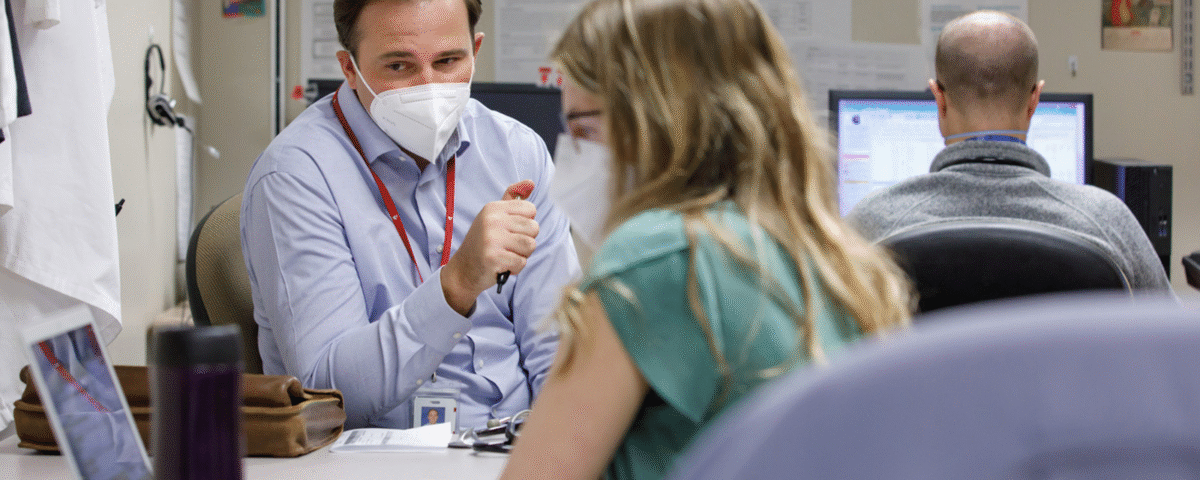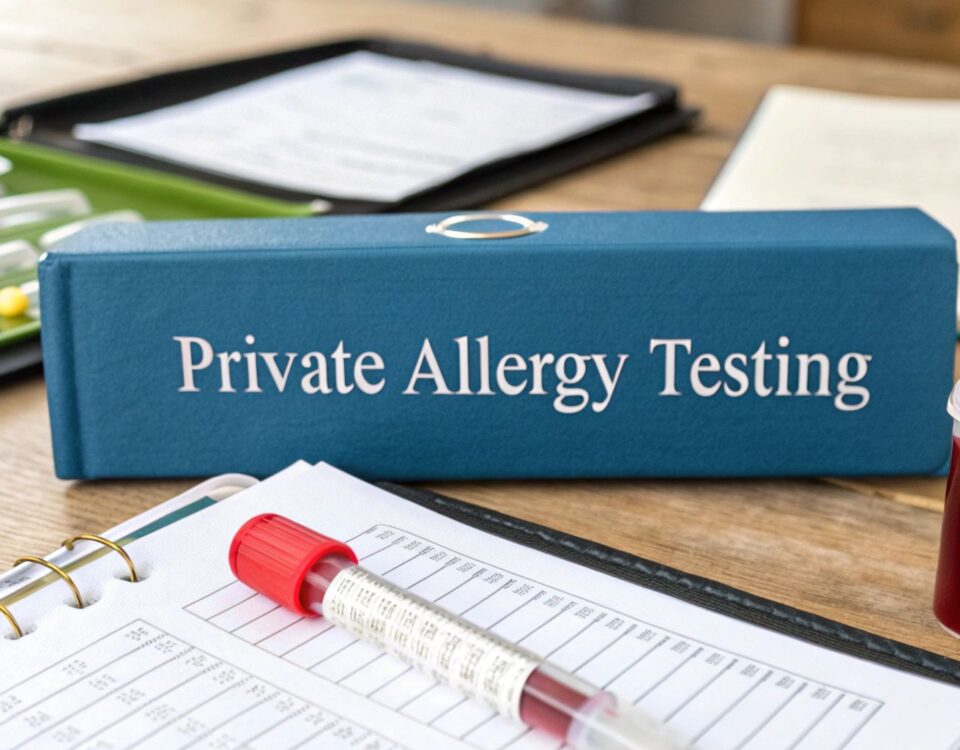
Quitalkers com: Exploring the Platform and Its Impact
September 24, 2025
Best Foods to Strengthen Immune System Naturally
September 26, 2025
Allergies affect millions of people worldwide and can range from mild seasonal sniffles to severe, life-threatening reactions. If you’re constantly dealing with symptoms like sneezing, itchy eyes, skin rashes, or even breathing issues, finding the best allergist and immunologist near me for allergy testing can make a life-changing difference. These specialists not only help diagnose the root cause of your symptoms but also provide treatment plans to improve your quality of life.
In this article, we’ll dive into why allergy testing is important, how an allergist or immunologist can help, what to expect during your first visit, and tips for choosing the best doctor near you.
Why See an Allergist or Immunologist?
Allergists and immunologists are medical specialists who diagnose and treat conditions related to the immune system. Their expertise includes:
- Environmental allergies (pollen, dust mites, mold, pet dander)
- Food allergies (nuts, shellfish, dairy, eggs, etc.)
- Drug allergies (penicillin, antibiotics, or pain relievers)
- Skin allergies (eczema, hives, contact dermatitis)
- Asthma and respiratory issues related to allergic reactions
- Immune deficiencies where the immune system doesn’t function properly
While a general doctor can provide basic allergy relief, an allergist and immunologist go deeper. They conduct specialized tests to identify the exact triggers and design treatments that can bring long-term relief.
The Role of Allergy Testing
Allergy testing is the first step to understanding what’s causing your reactions. Without testing, you might only be treating symptoms instead of addressing the root cause.
Types of Allergy Tests You May Encounter
| Test Type | How It Works | Commonly Used For | Time Required |
|---|---|---|---|
| Skin Prick Test | A small amount of allergen is applied to your skin, usually on your forearm or back, and observed for reactions. | Environmental & food allergies | 15–30 minutes |
| Intradermal Test | Allergen is injected under the skin for a more sensitive test. | Drug allergies, insect venom | 30 minutes |
| Patch Test | Allergens are placed on patches and applied to the skin for 48 hours. | Skin allergies like eczema or dermatitis | 2–3 days |
| Blood Test (IgE Test) | Measures antibodies in your blood against specific allergens. | Patients who cannot undergo skin testing | A few days for results |
Your allergist will recommend the most suitable test based on your history and symptoms.
What to Expect at Your First Visit
Walking into a specialist’s office for the first time can feel overwhelming, but knowing what to expect can ease anxiety. Here’s how a typical visit goes:
- Medical History Review – The allergist will ask about your symptoms, lifestyle, diet, environment, and family history.
- Physical Examination – A simple exam to check breathing, skin, and overall health.
- Allergy Testing – Depending on your condition, you may undergo skin or blood testing during the visit.
- Results Discussion – Some results, like skin prick tests, are available right away. Blood test results may take longer.
- Personalized Treatment Plan – Based on findings, the allergist may suggest medication, lifestyle adjustments, or even immunotherapy (allergy shots or tablets).
Treatment Options After Testing
Once your allergens are identified, your doctor will guide you through treatment choices. These can include:
- Avoidance strategies: Learning to reduce exposure to your triggers.
- Medications: Antihistamines, nasal sprays, or inhalers.
- Immunotherapy: Long-term treatment where your immune system is trained to become less reactive to allergens.
- Emergency Action Plans: For severe allergies, you may be prescribed an epinephrine auto-injector (like an EpiPen).
How to Find the Best Allergist and Immunologist Near Me
With so many doctors available, it’s important to find one who truly meets your needs. Here are practical tips to guide your search:
1. Check Credentials
Look for board-certified allergists and immunologists. Certification means they’ve completed specialized training and meet national medical standards.
2. Read Reviews and Patient Feedback
Online platforms like Google Reviews, Healthgrades, or Zocdoc often provide real patient experiences. Pay attention to comments about wait times, bedside manner, and treatment success.
3. Ask About Insurance Coverage
Before scheduling an appointment, confirm that the allergist accepts your insurance to avoid unexpected bills.
4. Location and Accessibility
Choose a clinic near your home or workplace. Consistency in follow-up visits is easier when travel is not a hassle.
5. Services Offered
Some specialists focus more on pediatric allergies, while others handle complex adult cases. Make sure their expertise matches your needs.
Signs It’s Time to See an Allergist Immediately
Some allergy symptoms can’t be ignored. You should seek an allergist urgently if you experience:
- Difficulty breathing or shortness of breath
- Frequent asthma attacks triggered by allergies
- Severe skin rashes or hives that don’t improve
- Recurring sinus infections
- Food reactions like swelling, vomiting, or dizziness
These could be signs of serious allergic reactions or immune system issues that require immediate care.
Benefits of Seeing the Right Specialist
Choosing the right allergist and immunologist near you offers long-term benefits:
- Accurate diagnosis of your allergy triggers
- Effective treatment plans tailored to your lifestyle
- Better quality of life with fewer symptoms
- Reduced risk of severe allergic reactions
- Peace of mind knowing you have expert support
Final Thoughts
Finding the best allergist and immunologist near me for allergy testing is one of the smartest steps you can take if allergies are interfering with your daily life. From identifying the root cause of your symptoms to providing targeted treatments, these specialists play a crucial role in helping you live more comfortably and confidently.
Don’t wait until allergies disrupt your health and happiness—schedule an appointment with a qualified allergist near you and take control of your well-being today.
FAQs
1. How long does an allergy test take?
Most skin prick tests take 15–30 minutes, while patch tests require 2–3 days. Blood test results may take a few days to come back.
2. Are allergy tests painful?
Skin prick tests may feel like tiny pinches but are generally not painful. Blood tests may cause mild discomfort similar to a routine blood draw.
3. Can children undergo allergy testing?
Yes. Children often benefit from early allergy testing, especially if they have asthma, frequent rashes, or persistent respiratory symptoms.
4. How often should I see my allergist?
Follow-up visits depend on your treatment plan. Some patients visit every few months, while others may only need annual checkups.
5. Is allergy testing covered by insurance?
In most cases, yes. However, coverage varies by provider and plan, so it’s always best to confirm with your insurance company before scheduling.

